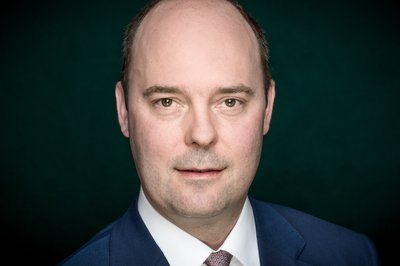Need for action for asset managers of occupational pension plans
- The duty for asset managers of occupational pension schemes to report to FINMA expired on 30 June 2020. If affiliated to a self-regulatory organisation (SRO), the existing activity may be continued until the application for authorisation is submitted; the deadline for submission is 31 December 2022.
- After clarifying the authorisation requirements and eligibility of an asset manager of occupational pension plans, the current business model should be critically reviewed and fundamental decisions made regarding the future organisational structure and activities.
- In addition, internal processes must be revised and formalised and a lean, suitable system of directives created.
Entry into force FinIA
On 1 January 2020, the new Financial Institutions Act (FinIA) entered into force and with it new regulations on the authorisation and supervision of asset managers of occupational pension schemes. Asset managers of occupational pension schemes are now subject to FINMA authorisation and, depending on the type and amount of assets under management, are supervised either by a supervisory organisation or directly by FINMA.
Managers who manage the assets of occupational pension schemes that are now subject to FINMA approval must report to FINMA by 30 June 2020. They must meet the requirements of FinIA and submit an application for authorisation to FINMA by 31 December 2022 at the latest. If they are affiliated to a self-regulatory organisation within the meaning of Art. 24 Anti-Money Laundering Act, they may continue their activities until FINMA issues a decision on authorisation. The licensing of asset managers of occupational pension schemes by the Supervisory Commission for Occupational Pension Plans (OAK BV) in accordance with Art. 48f para. 5 BVV/OPP 2 was discontinued as of 31 December 2019.
Two types of licences for asset managers in occupational pension schemes
Pursuant to Art. 24 para. 1 FinIA, a manager of collective assets is a person who manages assets on a commercial basis in the name and on behalf of collective investment schemes and/or occupational pension schemes. Managers of collective assets who manage the assets of occupational pension schemes totalling no more than CHF 100 million and in the mandatory segment manage no more than 20% of the assets of an individual occupational pension scheme are considered as more lightly regulated (simple) asset managers within the meaning of Art. 17 para. 1 FinIA (Art. 24 para. 2 lit. b FinIA). All other asset managers in the occupational benefits sector are considered to be managers of collective assets.
The thresholds for managers of pension fund assets are calculated independently of other types of assets under management such as individual asset management and management of other collective investment schemes. In this context, the amount of assets under management is to be calculated on the basis of Art. 34 para. 2 Financial Institutions Ordinance (FinIO) as follows:
- Pension schemes (registered and unregistered)
- Employer-sponsored welfare funds
- Investment foundations
- Pillar 3a foundations
- Vested benefits foundations
The threshold value of CHF 100 million maximum is calculated by the manager on a quarterly basis, and the threshold value of 20% of the assets of an individual occupational pension scheme is calculated by the pension fund annually and communicated to the manager.
Main differences in the regulation of (simple) asset managers and managers of collective assets
In principle, managers of collective assets are subject to the same requirements as formerly imposed on asset managers under the Collective Investment Schemes Act. The requirements for the minimum structure of asset managers of collective assets depend on the business model and complexity of the business, the amount of assets under management and the possibility of outsourcing certain functions. FINMA’s supervisory practice regarding the organisation of asset managers of collective assets has developed steadily. FINMA’s (in some cases very strict) organisational requirements applied equally to small and large asset managers. FINMA is responsible for granting licences, ongoing supervision and enforcement of managers of collective assets.
Art. 9 para. 3 FinIA now provides that the minimum requirements for the organisation of financial institutions shall take into account the different business activities and sizes of companies as well as the risks of financial institutions. Art. 37 para. 5 and Art. 38 para. 4 FinIO provide among other things that FINMA may grant an exception concerning requirements for a special body for the overall management, supervision and control, if the nature and scope of the business requires it, in particular if the company has ten or fewer full-time equivalent employees or annual gross income of less than CHF 5 million.
Simplified requirements apply to (simple) asset managers pursuant to Art. 17 para. 1 FinIA. FINMA is responsible for authorisation and enforcement of these (simple) asset managers, while ongoing supervision is performed by a supervisory organisation. In extremis, a structure with only one person is conceivable in the case of a (simple) asset manager, whereas in practice a substance of at least four persons is typically required for managers of collective assets.
Licensing conditions and organisational requirements for managers of collective assets
1. Organisation
The manager of collective assets domiciled in Switzerland must have the legal form of a commercial enterprise, in practice typically a joint stock company (AG/SA). Art. 9 FinIA in conjunction with Art. 37 FinIO provides in particular that management must consist of at least two persons and that the manager of collective assets must designate a special body for the overall management, supervision and control. Supervisory law does not allow the majority of the board of directors of a joint stock company (AG/SA) to be members of the management body, nor does it permit the chairman of the board of directors and the CEO be the same person. It is also required that at least one-third of the members of the board of directors be independent of persons holding a qualified interest in the manager of collective assets and the companies of the same group. This provision does not apply to managers of collective assets who are part of a financial group subject to consolidated supervision by FINMA.
2. Risk management and internal control
Managers of collective assets must have an adequately equipped risk management system and effective internal controls. In particular, these must ensure compliance with legal and company-internal regulations and govern the basic principles of risk management and determine risk tolerance. Risk management and compliance functions must be separated functionally and hierarchically from the operational business units, in particular from the function of investment decisions.
The board of directors is responsible for defining, safeguarding and monitoring the internal control system (ICS) and risk tolerance, while the management implements the relevant instructions of the board of directors, develops suitable guidelines, procedures and processes and ensures appropriate periodic reporting to the board of directors.
3. Outsourcing
A manager of collective assets may delegate tasks to third parties where this is in the interest of proper management. In practice, the compliance function, but also risk management or IT activities, are often outsourced. Only persons who are qualified to carry out the task properly may be commissioned, and the instruction, supervision and control of performance of the tasks must be ensured. Supervisory law also requires a written delegation agreement to be concluded between the delegating licence holder and the contractor. The contract should cover points including, but not limited to, the rights of instruction and information as well as the control possibilities for the licensee. In addition, the licensee must ensure that its audit company and FINMA also have the right of inspection and control.
Outsourcing of functions is subject to approval by FINMA and must be listed in the organisational regulations.
Authorisation procedure
It typically takes three to four months to prepare an application for FINMA authorisation as a manager of collective assets. This step should not be underestimated, especially for companies that are not regulated at present. In the vast majority of cases, prudential supervision by FINMA results in a substantial change in internal processes and corporate culture. Previously unformalised processes must be documented, while organisational regulations and internal directives must be drawn up. In particular, FINMA also requires a detailed description of the investment processes, which clearly sets out which function contributes to the investment decision, when and how.
Furthermore, a comprehensive statement by a licensing auditor is required in accordance with separate guidelines on audit firm confirmations relating to applications for bank licences. Such an audit may not be carried out by the statutory or regulatory audit firm. In any case, early involvement of the application auditor is recommended.
The substantive examination of the application by FINMA takes several months. As part of this substantive review, FINMA also holds a meeting with representatives of the new institution that has applied to be authorised. A FINMA ruling on authorisation then becomes legally effective as soon as the relevant conditions, such as amendments to the articles of association, entry into force of the organisational regulations and directives, signing of certain contracts, etc., have been implemented.
Next steps
After clarifying the authorisation requirements and eligibility of an asset manager of occupational pension schemes, it is recommended in a next step to critically review the current business model and to make fundamental decisions regarding the future organisational structure and activities. It is also necessary to revise and formalise internal processes and to create a lean, suitable system of directives. It is important here to proceed with a sense of proportion and to implement the new legal requirements in such a way that no regulatory overkill results.
The corresponding authorisation application must be submitted to FINMA by 31 December 2022 at the latest. Our team has many years of experience with licence applications for managers of collective assets and would be happy to share further information if required.
No legal or tax advice
This legal update provides a high-level overview and does not claim to be comprehensive. It does not represent legal or tax advice. If you have any questions relating to this legal update or would like to have advice concerning your particular circumstances, please get in touch with your contact at Pestalozzi Attorneys at Law Ltd. or one of the contact persons mentioned in this Legal Update.
© 2020 Pestalozzi Attorneys at Law Ltd. All rights reserved.



